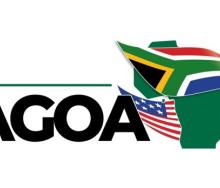Delays and longer lead times are part of the price that has to be paid for increased cargo security measures in light of global conflicts and the increased risk of terrorist attacks.
Around 35% of global airfreight is monitored through Pre-Loading Advance Cargo Information (PLACI) regimes.
These require comprehensive details of shippers and consignees, and specify that cargo must originate from shippers who have recognised business relationships with freight forwarders or carriers.
PLACI regulations are applicable in the United States, Europe, United Kingdom, United Arab Emirates and Canada, according to the International Air Transport Association (Iata).
Freight forwarders, air carriers, postal operators, or other relevant entities submit a specific set of data, known as the 7+1 data set, to regulators as early as possible before the cargo is loaded onto the aircraft at the last point of departure.
The PLACI data is used to assess the potential aviation security risk posed by the consignment.
It is not a standalone security method but rather an additional component of a multi-layered approach to aviation security, according to the World Customs Organization.
In South Africa, much of the onus falls on the airfreight agents in terms of Part 108 of the Civil Aviation Regulations, which were implemented on July 1, 2009.
Air carriers may accept only “known cargo,” which is a consignment to which the security controls prescribed by Part 108 have been applied.
In essence, cargo may only be accepted from a licensed agent who has applied the appropriate security controls and hands the freight over as “known cargo”.
- Read the full article in this week’s Freight Features edition on “Airfreight”, available on Friday, May 30.













